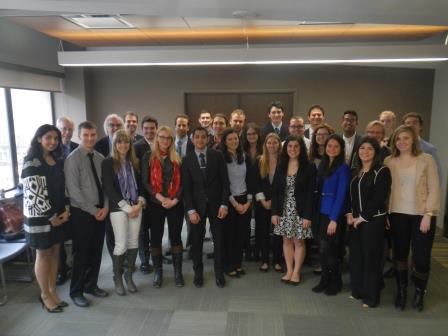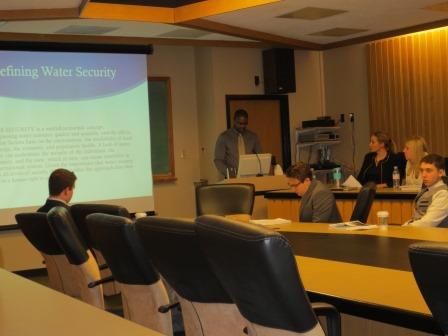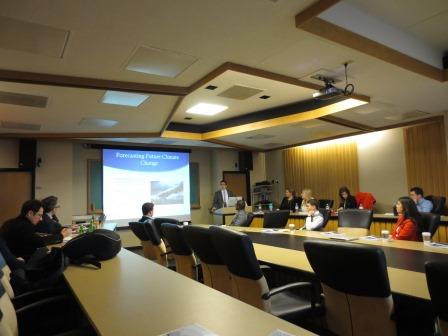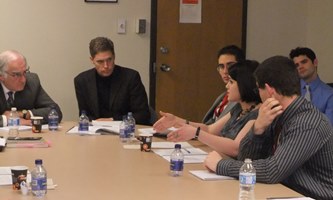IR Capstone Group Projects
This interdisciplinary course examines the workings and evolution of international relations from 1900 to the present day. The course focuses on key events, major developments and trends, and diverse international actors. Here are some examples of the group projects created by our students.
2020-2021: Leading Through Crisis: Resilience and Reform
For the project website please access it here.
2018-2019: Visualizing Canada’s Future in the Fifth Domain
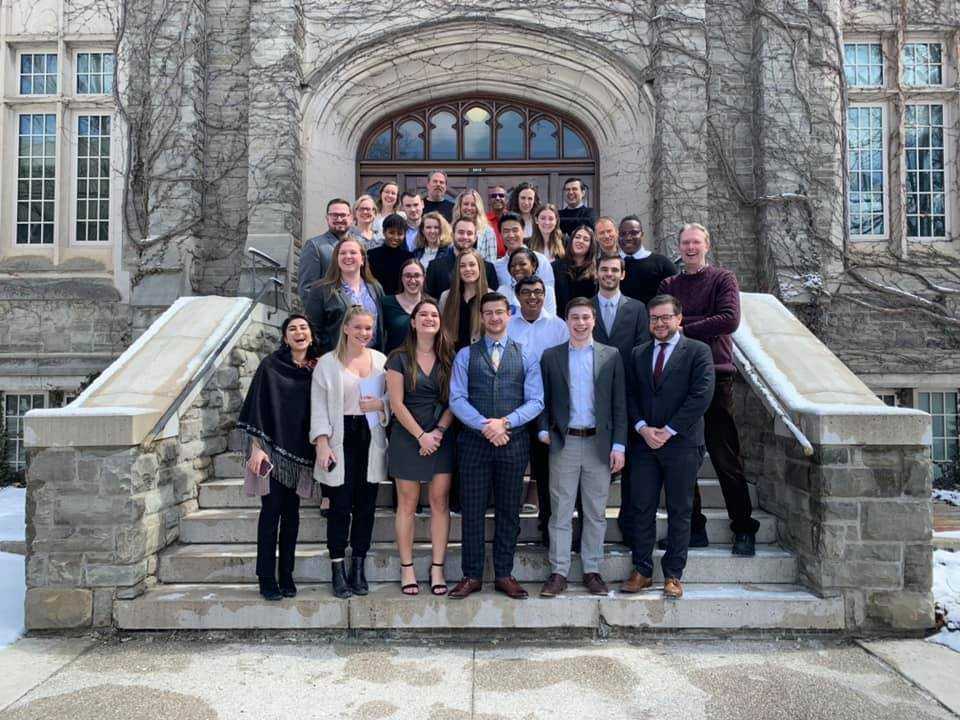
This year’s class tackled the timely, but ever changing, topic of cyber governance. The class identified both threats and opportunities in the cybersphere in case studies that focused on individual privacy, the use of crypto-currencies in development, election interference in Sweden, Ukraine and the US, what 5G technology the government of Canada should support, mis/disinformation related to anti-intellectualism and radicalization, and the role of corporations in developing infrastructure and commodifying digital goods and services. The students developed recommendations to establish a cyber regime to promote innovation, facilitate access to credible information, protect individual well-being and state security, bring about government and corporate transparency and accountability, and engender stability, trust and cooperation among all major stakeholders. You can read their report here. The class presented their report to three experts: Professor Veronica Kitchen (Waterloo), Professor Bill Turkel (Western), and Tom Cameron, a graduate of the IR program and an analyst at GAC.
2017-2018: Tabletop Scenarios with Feminist Audit 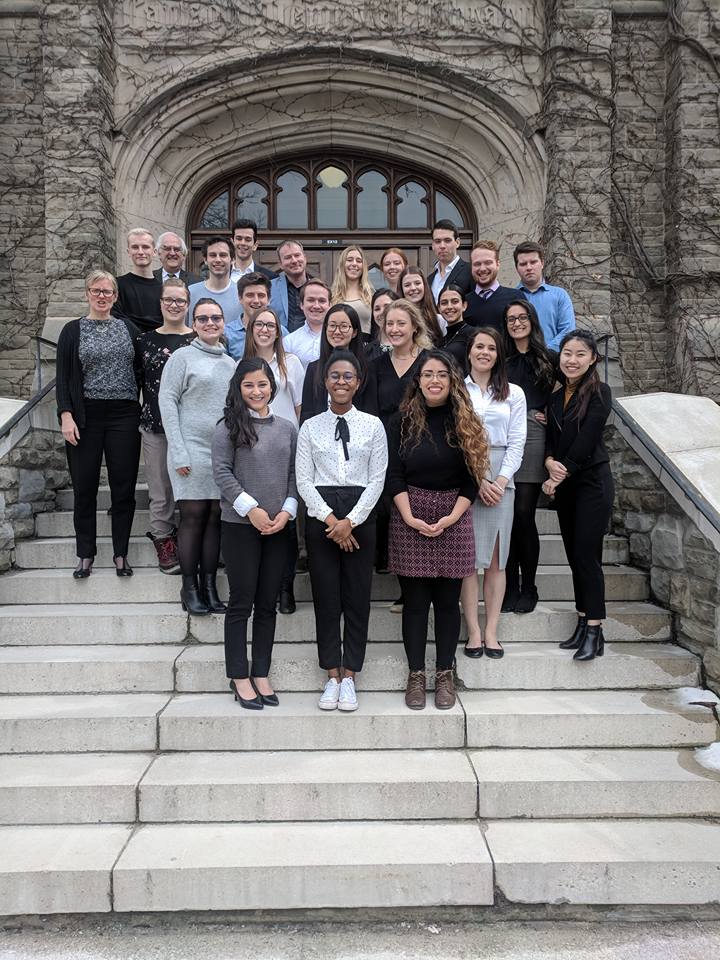
This website is designed as a comprehensive exploration of Canadian policy domestically and internationally. We have created potential scenarios, solutions and proposals based off of current events to further explore Canadian trends in economics, global governance, feminist policy, Canadian-American relations, security, and domestic relations. [View the website here]
2016-2017: Canada and the Day After Tomorrow: Strategic Outlook 2017-2037
This report proposes a shift in policy making that focuses on central goals that foster long-term thinking, while still keeping in mind interests that are crucial to the wellbeing of Canadians. Establishing clear, long-term goals represents a departure from past practice and will enable Canada to evaluate and react to global events in a consistent way. Canadian policy will pursue and highlight these established goals, and when problems arise – conflicting policies, humanitarian crises, and new threats – policymakers will be equipped to develop new policies that maintain the centrality of Canada’s goals. As a result, Canadian foreign policy will suffer less from policy incoherence, which will enable Canada to be a reliable actor in the international system. Canada’s potential will therefore be realized, and Canadian foreign policy will make more of an impact. It will be possible for Canada to act as a leader in certain fields. If Canada develops consistent and coherent policy through the pursuit of clear goals, a leadership role can be attained in certain areas. The following goals inform our policy priorities and recommendations, and identify objectives that Canada should pursue. [Read the Report Here]
2015-2016: Pathway to Peace: Canada’s Re-engagement with UN Peace Operations
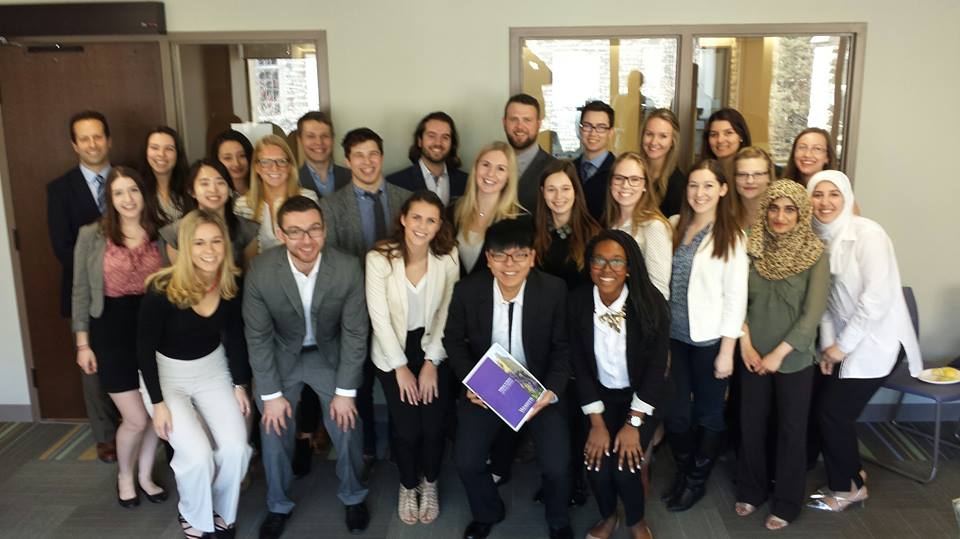
The students of IR4702 spent the 2015-2016 academic year examining the history and evolution of United Nations peacekeeping focusing particularly on Canada’s contributions to that process. The election of a new Liberal government under the leadership of Justin Trudeau in October of 2015 provided the students a timely opportunity to devise policy recommendations in this area. In their report, the students argued that the Trudeau government’s stated desire to re-establish a close relationship with the UN could be achieved by revising Canada’s contributions to UN peace operations. Their three-part report made recommendations in three areas of peace operations: conflict prevention and mediation, peace enforcement, and post-conflict peace operations. These recommendations were presented to a panel of experts of both academics and practitioners - Brock Millman (Department of History, Western), Timothy Donais (Department of Global Studies, Wilfrid Laurier University), and Lieutenant General (Ret’d) Peter Devlin, (Former Commander of the Canadian Army). [Read the Report]
2014-2015: Doing Development: From Campus to Canada
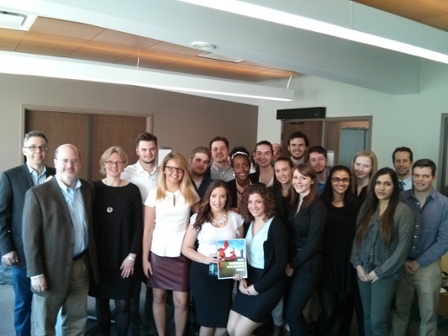
In 2014-15, the class examined global development efforts and Canada’s global development policy. This was a propitious time to examine Canada’s global development policy, with the recent move of CIDA into the Department of Foreign Affairs and International Trade. 2015 is also the target deadline for the UN’s Millennium Development Goals; these targets have been stimulating reflection and assessment about the success and failures of global development efforts. With planning underway internationally to chart the post-2015 development agenda, the class had an opportunity to assess the history of global development, Canada’s role in global development, and consider options for future Canadian development policy as well as efforts at the international level to promote development. After writing a history of development and articulating their own philosophy of development, the class produced a report with two distinct but complementary parts. The first part assessed Canadian development policies and initiatives over the last ten years through the rubric of aid effectiveness. Students developed a report card in which they evaluated eight aspects of Canadian development, including local ownership, sustainability, politicization and budget size. The second part focused on the University of Western Ontario to determine how development was integrated into the undergraduate curriculum. Having determined that students wanted to learn more about global development but had few opportunities to do so, the class proposed reforms as well as new initiatives which would allow students to develop a global development consciousness and raise student awareness about global development issues. The class presented their report to a panel of experts – Terry Sicular (Department of Economics, Western), Craig Johnson (Department of Political Science, Guelph University) and Jeff Nankivell, Regional Director General for Asia, DFATD. You can read the report here. [Read the Report]
2013-2014: Winning Strategies: Canada’s Election to the Security Council of the United Nations
This year the students in IR4701E took up a Canadian topic for the group project: to devise a campaign to get Canada elected to the Security Council of the United Nations. Canada lost its bid for a Security Council seat in 201o, the first time it had failed to win a seat since 1946. The outcome was surprising and elicited disappointment and confusion. Commentaries on Canada’s “defeat” identified various explanations, including specific policies – such as environmental policies and declining involvement in peacekeeping missions – as well as general shifts, notably a detachment from the United Nations in recent years. Some blamed the defeat on a poorly run campaign. There were many contributing factors, but no definitive explanation of the result. The class used the 201o Security Council election as a point of departure to examine Canadian foreign policy, past and present, changes in the international community since 1945, as well as the evolution of the United Nations in order to devise a campaign to get Canada elected to the Security Council. In the end, the class developed two campaigns. The first campaign focused on current foreign policy and demonstrated its relevance to global security; the second campaign adopted a more reformist position, mapping out what they thought of as a relevant, engaged, and distinctive Canadian foreign policy that would reinforce the UN’s mandate to support global security, broadly defined. The students presented their report to two academic experts – Kim Nossal (Queen’s University) and Roland Paris (University of Ottawa) – and Paul Heinbecker, a career diplomat and former ambassador to Germany and permanent representative to the UN, and now a frequent commentator on Canadian foreign policy. [Read the Report]
2012-2013: Around the River Bend: Global Climate Change, Water Security, and the Implications for Canada
2010-2011: Beyond the Heart of Darkness: A Diagnosis of the Failed State and Recommendations for Reform in the Democratic Republic of Congo
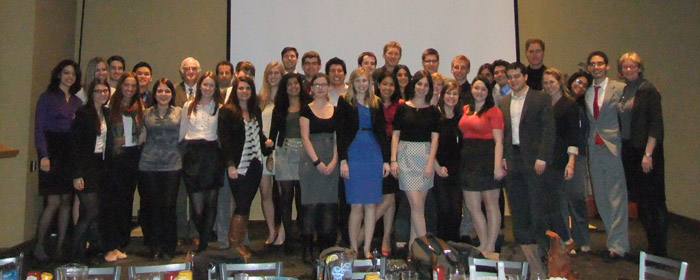
In 2010-2011, the students of IR4701E studied the causes, forms and evolution of ‘hot’ conflicts of the 20th century, meaning conflicts that have involved violence or force. The conflicts took various forms, including inter-state, civil, ideological, economic, ethnic, cultural and environmental. The class examined case studies and adopted a comparative approach to understand the causes and resolution of conflicts. The second term was devoted to a group project which focused on the Democratic Republic of Congo. In the mid-1990s, Congo (formerly Zaire) was the scene of years of violent conflict, following the upheaval of the Rwanda genocide. At various points, almost half of Africa’s states were either directly or indirectly involved in the various wars in Congo. These wars led to more than 5 million people being killed, many indirectly through disease or starvation. Some have termed this “Africa’s World War.” The shaky resolution of the Congo conflict in 2002 has not resolved the instability in the Great Lakes Region of Africa, nor in the Congo itself. Several insurgencies still rage in eastern Congo, and the prospect of further instability is high. The class brought together 35 graduating students who examined the causes of the conflict and the roots of instability. They also devised policy recommendations to promote positive change that would restore stability to the DRC and its people. The students focused on five issue areas: security, governance, the economy, the judiciary, and human rights. [Read the Report]
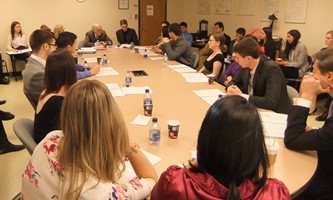
The class presented their final report to two experts in the study of conflict: Professor Kim Nossal (Queen’s University) and Professor Ian Spears (University of Guelph).
2009-2010: A Blueprint for Peace in Afghanistan
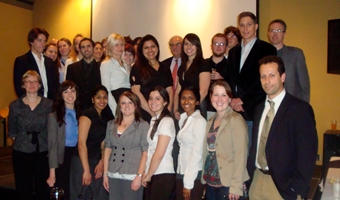
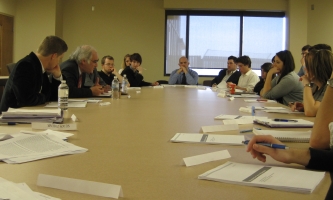
2008-2009: Canada and the World: 2009 and Beyond
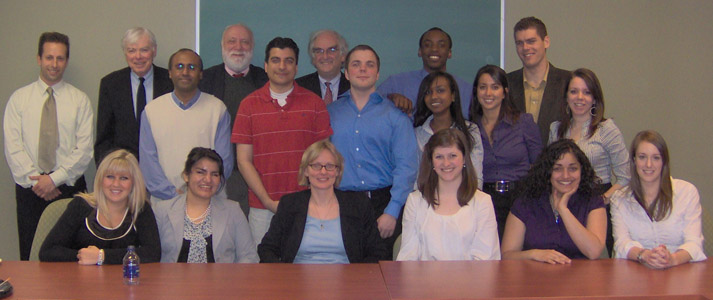
In 2008-2009, the undergraduate program in International Relations was completely phased in as IR4701E was offered for the first time. Francine McKenzie (History) and Tom Deligiannis (Political Science) designed the course as a study of Canada’s external relations. The main part of the course was a group project: a review of the Harper government’s foreign policy. The final report –Canada and the World: 2009 and Beyond - examined Canada’s current foreign policy in three categories: Economic Strategy, the Environment, and Security. [Read the Report]

